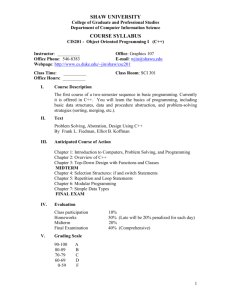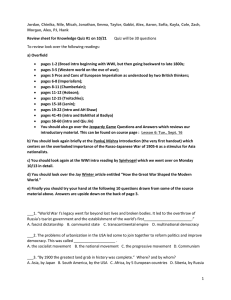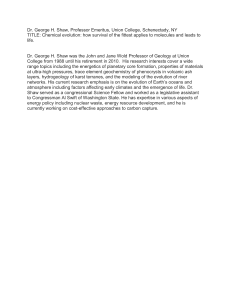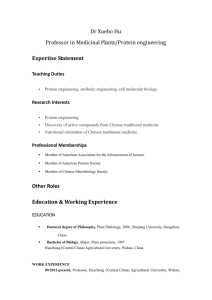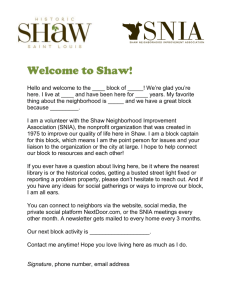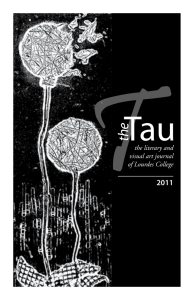Review sheet for Knowledge Quiz #1 Quiz will be 20 questions To
advertisement
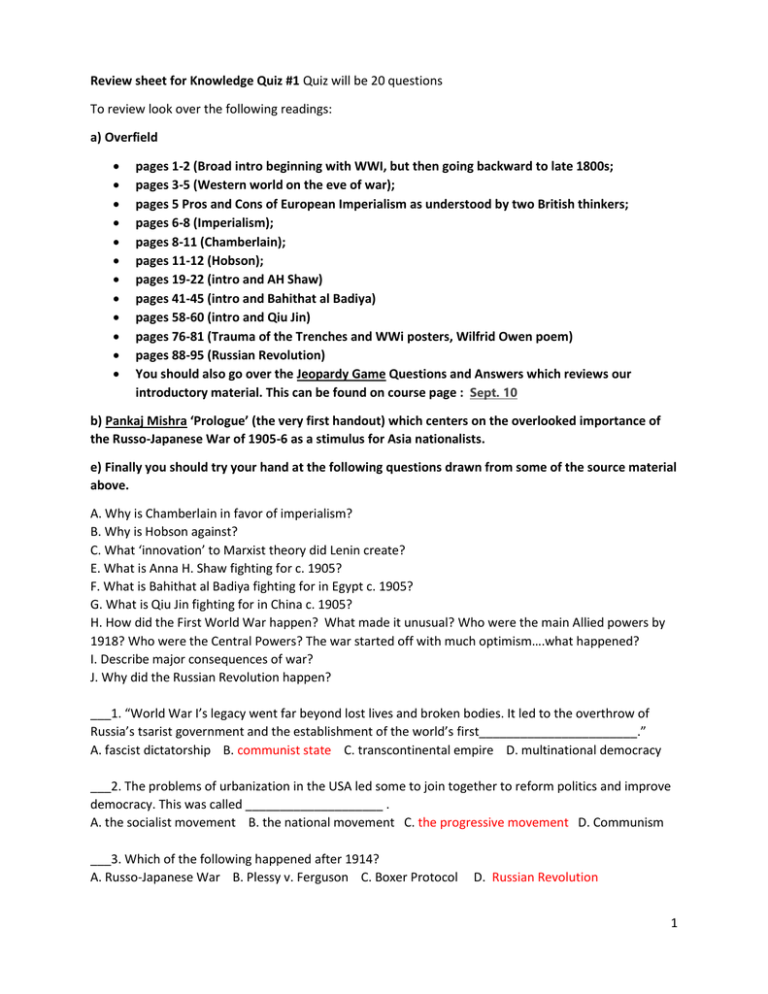
Review sheet for Knowledge Quiz #1 Quiz will be 20 questions To review look over the following readings: a) Overfield pages 1-2 (Broad intro beginning with WWI, but then going backward to late 1800s; pages 3-5 (Western world on the eve of war); pages 5 Pros and Cons of European Imperialism as understood by two British thinkers; pages 6-8 (Imperialism); pages 8-11 (Chamberlain); pages 11-12 (Hobson); pages 19-22 (intro and AH Shaw) pages 41-45 (intro and Bahithat al Badiya) pages 58-60 (intro and Qiu Jin) pages 76-81 (Trauma of the Trenches and WWi posters, Wilfrid Owen poem) pages 88-95 (Russian Revolution) You should also go over the Jeopardy Game Questions and Answers which reviews our introductory material. This can be found on course page : Sept. 10 b) Pankaj Mishra ‘Prologue’ (the very first handout) which centers on the overlooked importance of the Russo-Japanese War of 1905-6 as a stimulus for Asia nationalists. e) Finally you should try your hand at the following questions drawn from some of the source material above. A. Why is Chamberlain in favor of imperialism? B. Why is Hobson against? C. What ‘innovation’ to Marxist theory did Lenin create? E. What is Anna H. Shaw fighting for c. 1905? F. What is Bahithat al Badiya fighting for in Egypt c. 1905? G. What is Qiu Jin fighting for in China c. 1905? H. How did the First World War happen? What made it unusual? Who were the main Allied powers by 1918? Who were the Central Powers? The war started off with much optimism….what happened? I. Describe major consequences of war? J. Why did the Russian Revolution happen? ___1. “World War I’s legacy went far beyond lost lives and broken bodies. It led to the overthrow of Russia’s tsarist government and the establishment of the world’s first_______________________.” A. fascist dictatorship B. communist state C. transcontinental empire D. multinational democracy ___2. The problems of urbanization in the USA led some to join together to reform politics and improve democracy. This was called ____________________ . A. the socialist movement B. the national movement C. the progressive movement D. Communism ___3. Which of the following happened after 1914? A. Russo-Japanese War B. Plessy v. Ferguson C. Boxer Protocol D. Russian Revolution 1 ___4. In China, Qiu Jin was responding to and rejecting traditional Chinese patriarchy, embodied at the top of the society by the Qing dynasty, but she was also responding to pressures coming from outside China. What was happening to China c. 1900? A. massive turmoil called the Boxer rebellion directed against foreign imperialists in China B. a war against Japan had just been lost and China was having to pay reparations C. The Boxer Protocol (defeat by 8 Great Powers) meant China had lost control of its destiny and was being carved up by European and powers (and Japan) D. all of the above ___5. Identify the following speaker: “What we want is to give to this country the means of communication by a railway from the coast which would bring the population – which is more intelligent than the ordinary in the heart of Africa – our iron, and our cloths, our cotton, and even our jewelry, because I believe the savages are not at all insensible to the delights of personal adornment. (Laughter).” A. Joseph Chamberlain B. Anna Howard Shaw C. John Hobson D. Bahithat al Badiya ___6. The Boer War in South Africa cost the British many lives and was a brutal campaign over three years long (1899-1902). To many it was clearly about taking land and resources which had belonged to others. _________________ complained bitterly that the British public was delusional if it believed that the war and the control of these resources would necessarily benefit the public. Instead he believed only a few _______________________ would benefit from this imperial war in Africa. A. Joseph Chamberlain; countries B. Vladimir Lenin; of the “lower races” C. Mohandas Gandhi; of the upper castes D. John Hobson; business interests ___8. “Does an intelligent interest in the education of a child render a woman less a mother? Does the housekeeping instinct of woman manifested in the desire for clean streets and pure water, and unadulterated food, destroy her efficiency as a home-maker?” The point of this statement by AH Shaw is that: A. women are interested in domestic family issues B. to get reforms that will benefit society women must be allowed to engage in politics C. women can be both good wives and good mothers D. society’s harms are the responsibility of the men and the women have no role to play ___9. Identify the speaker or author: “Behind the wagon we flung him in, And watch the white eyes writhing in his face, His hanging face, like a devil’s sick of sin…” A. Wilfrid Owen B. John Hobson C. Qiu Jin D. Bahithat al-Badiya ___10. What caused the First World War to become global? A. alliance system B. Great powers extensive imperial interests C. the involvement of non-European peoples including eventually the USA D. all of the above 2

